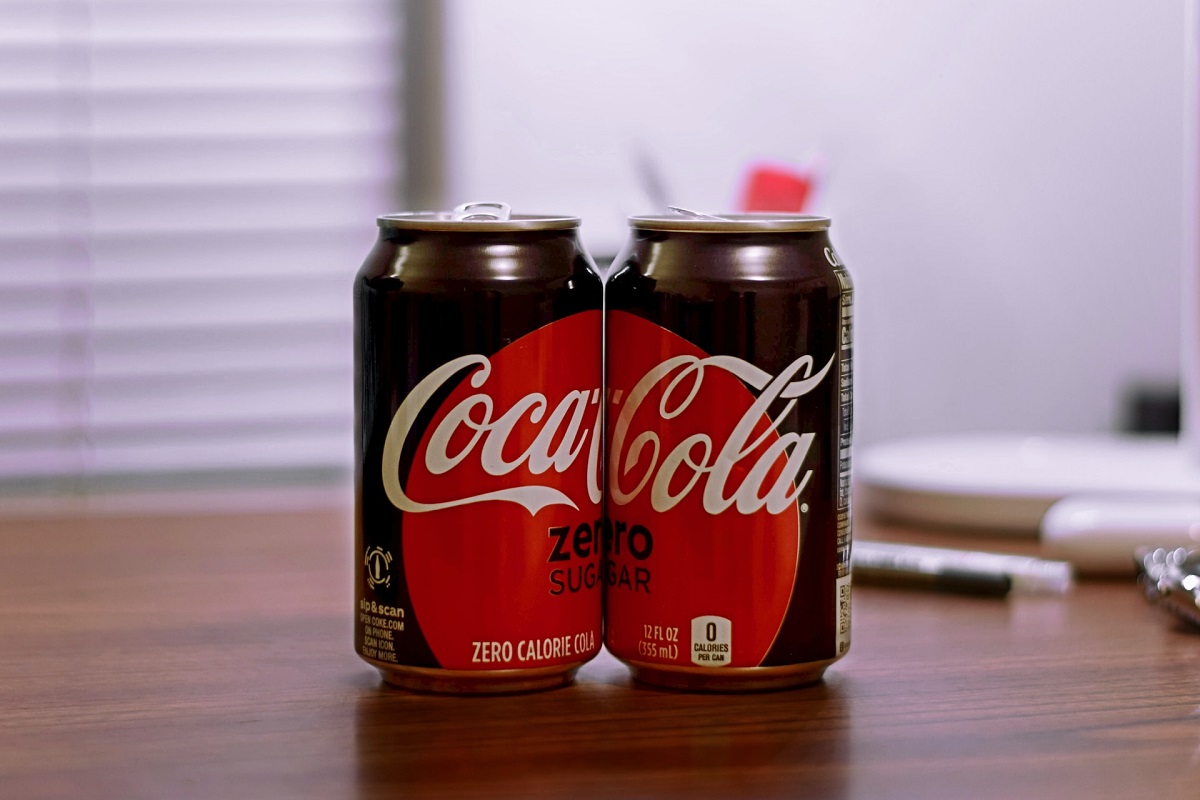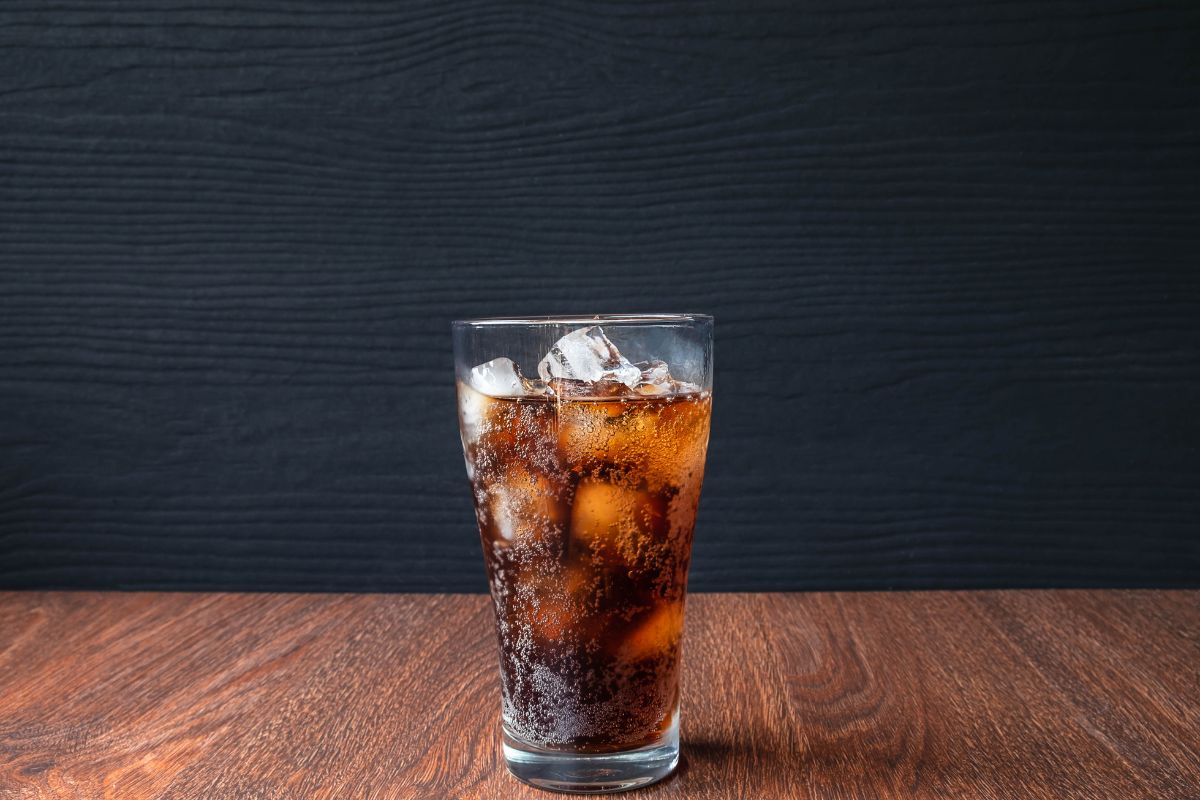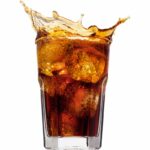Coca-Cola Zero, commonly known as Coke Zero, has garnered significant attention and become a popular choice among individuals seeking a sugar-free alternative to regular Coca-Cola.
While its name suggests a zero-calorie beverage, many wonder whether Coke Zero contains another common component of soft drinks: caffeine.

In this article, we will delve into the question of whether or not Coke Zero contains caffeine. We’ll explore the ingredients, delve into the production process, and provide a clear answer to the caffeine conundrum.
So, if you’re curious about the caffeine content in Coke Zero and want to make an informed choice about your beverage preferences, read on to discover the truth about this sugar-free carbonated drink.
What Is Coke Zero?
Coke Zero is a sugar-free, low-calorie carbonated beverage that is marketed as a healthier alternative to regular Coca-Cola.
Introduced back in 2005 by The Coca-Cola Company, Coke Zero was developed to provide the taste of classic Coca-Cola without the added sugar and calories.
Coke Zero is specifically formulated to closely mimic the flavor profile of Coca-Cola Classic while containing no sugar.
It aims to provide a satisfying and refreshing soda experience for those looking to reduce their sugar intake or manage their calorie consumption.
The primary goal of Coke Zero is to offer consumers a zero-calorie option without sacrificing the taste they associate with the iconic Coca-Cola brand.
It has gained popularity among individuals who enjoy the flavor of Coca-Cola but are seeking a healthier alternative or have dietary restrictions on sugar or calories.
Coke Zero contains a blend of artificial sweeteners, including aspartame and acesulfame potassium (Ace-K), which provide a sweet taste without adding significant calories.
The specific formulation and ingredients may vary slightly based on regional preferences and regulations.
It is important to note that while Coke Zero is marketed as a sugar-free beverage, it may still contain other ingredients.
The presence of caffeine, in particular, is a common concern for individuals looking to reduce their caffeine intake or avoid it altogether.
Does Coke Zero Contain Caffeine?
Yes, Coke Zero does contain caffeine. While it is marketed as a sugar-free beverage, it still retains the caffeine content found in regular Coca-Cola.
The caffeine in Coke Zero provides a stimulating effect, which is a characteristic often associated with carbonated soft drinks.
The exact amount of caffeine in Coke Zero can vary slightly based on factors such as regional regulations and manufacturing processes. However, in general, a 12-ounce (355 ml) can of Coke Zero contains approximately 34-46 milligrams of caffeine.
It’s important to note that larger serving sizes or different packaging formats may contain higher amounts of caffeine.
Caffeine is a naturally occurring stimulant found in various plants, including coffee beans, tea leaves, and cacao. In carbonated beverages like Coke Zero, caffeine is often added to enhance the flavor profile and provide a mild stimulatory effect.
Consuming moderate amounts of caffeine, such as those found in a can of Coke Zero, is generally considered safe for most healthy individuals.
However, it’s essential to be aware of your personal caffeine sensitivity and any specific dietary restrictions or health concerns you may have.
If you are sensitive to caffeine or wish to limit your intake, it’s advisable to read nutrition labels, check serving sizes, and consider alternative caffeine-free beverages if desired.
Alternatives To Coke Zero
If you’re looking for alternatives to Coke Zero, there are several options available that offer similar characteristics or cater to specific dietary preferences. Here are some popular alternatives.
Diet Soda
Many soft drink companies offer a variety of diet sodas that are sugar-free and low in calories. These options often use artificial sweeteners to provide sweetness without the added sugar.
Examples include Diet Pepsi, Diet Sprite, and Diet Dr. Pepper.

Sparkling Water
If you enjoy the carbonation and refreshing quality of Coke Zero but want to avoid artificial sweeteners and caffeine, sparkling water can be a great choice.
Brands like LaCroix, Perrier, and San Pellegrino offer a wide range of flavored sparkling waters that are calorie-free and free of added sugars.
Unsweetened Iced Tea
For a non-carbonated alternative, unsweetened iced tea can be a refreshing option. You can brew your own tea and chill it or choose ready-to-drink varieties without added sugars or artificial sweeteners.
Green tea, herbal teas, or black tea are popular choices.
Flavored Water Infusions
Infusing water with natural flavors can provide a refreshing and flavorful beverage without the need for sweeteners or carbonation.
You can add slices of citrus fruits, berries, herbs like mint or basil, or cucumber to your water for a burst of flavor.
Homemade Fruit-Infused Drinks
Create your own customized drinks by infusing water with fruits, herbs, and spices.
Simply add sliced fruits, such as strawberries, lemons, or watermelon, along with herbs like mint or basil, to a pitcher of water and let it infuse for a few hours in the refrigerator.
Herbal Teas
Herbal teas come in a wide variety of flavors and are naturally caffeine-free. They can be enjoyed hot or cold and are often available in blends that offer unique tastes and health benefits.
Examples include chamomile, peppermint, hibiscus, and rooibos teas.
These alternatives offer a range of flavors and cater to different dietary preferences, including sugar-free, caffeine-free, or natural options.
Experiment with different beverages to find the ones that best suit your taste and nutritional requirements.
Final Thoughts
Coke Zero, despite being a sugar-free beverage, does contain caffeine. While it offers a zero-calorie alternative to regular Coca-Cola, it retains the stimulating effects of caffeine.
Understanding the caffeine content of Coke Zero is essential for individuals who want to make informed choices about their beverage consumption.
By being aware of the caffeine content, individuals can make choices that align with their desired caffeine intake and overall well-being.
Remember to read product labels, consider serving sizes, and choose beverages that best suit your needs and preferences.
- How To Reheat A Cheesesteak - November 5, 2023
- What Are Three Must Have Kitchen Knives? - September 22, 2023
- How To Protect Edges Of Pie Crust - June 15, 2023








